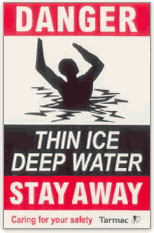
Dan Abrams' new business model that pairs journalists with PR people, according to journalism professor Ed Wasserman, "skates on the thinnest of ice when it comes to fundamental principles governing conflict of interest.”
“Handling conflicts of interest – ensuring clear loyalties and clean hands – is emerging as perhaps the signature ethical challenge of the new media age,” writes Edward Wasserman. In a column for The Miami Herald, posted by the San Gabriel Valley Tribune, Wasserman says a new PR firm will be the lastest test for journalists.
Wasserman, a Knight professor of journalism ethics at Washington and Lee University, reports that former MSNBC executive Dan Abrams and former Huffington Post media writer Rachel Sklar are “launching a new PR firm that will hire practicing journalists to advise corporate clients on handling the media.”
Wasserman says the plan has drawn only a “mild” amount of criticism considering it “skates on the thinnest of ice when it comes to fundamental principles governing conflict of interest.”
He goes on to describe the business model for the proposed PR firm: “In its essentials, Abrams Research will offer qualified and well-connected journalists lucrative off-screen engagements with private entities that need a hand with their media relations – managing a PR crisis, positioning a product rollout, fashioning a new sports sponsorship. The idea, as one fan told The Wall Street Journal, is that ‘working journalists are in a unique position to understand what will appeal to other working journalists.’”
He then points out the principal problem with the proposal, “The PR industry is laced with former, not active, journalists. Your skills are supposed to be applied in the public’s interest, explaining, exposing and holding institutions accountable – not helping newsmakers charm, impress, seduce or outwit reporters just like you.”
Wasserman suggest Abrams lay down a clear set of rules for his employees in an attempt to avoid ethical conflicts of interest. His number one suggestion: “At a minimum, I’d say nobody should operate in the same industrial space simultaneously as both a PR advisor and a journalist. Nobody should take money from a company that has been affected by his or her journalism in the past, say, 24 months, or report on it for a similarly substantial period after any consulting work.”





